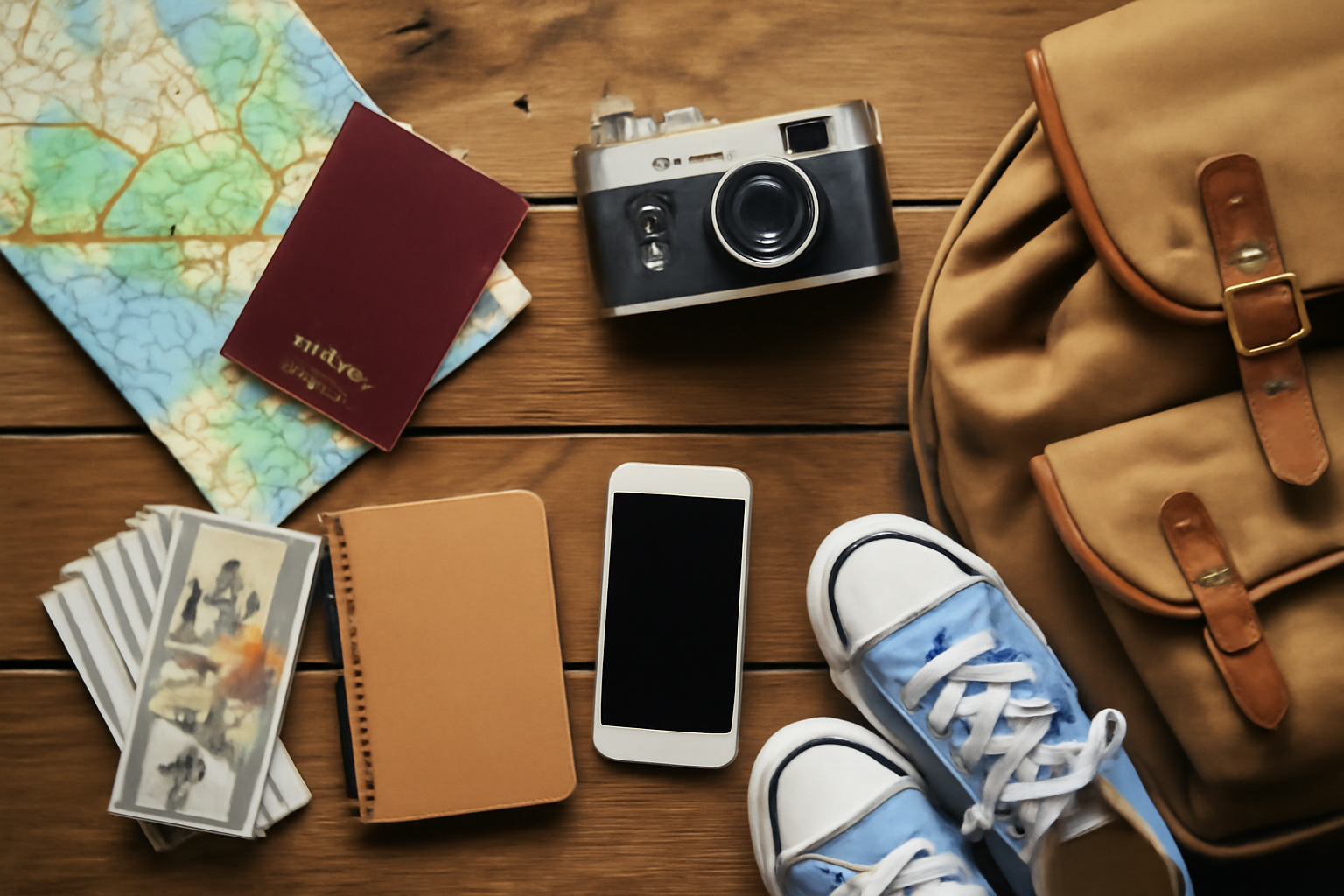Traveling doesn’t have to be expensive. In fact, with the right strategies and a bit of planning, you can travel on a budget without sacrificing quality or enjoyment. Whether you’re a student backpacking through Europe, a solo traveler on a long-term adventure, or a family looking for an affordable vacation, there are countless ways to save money while exploring the world. Here are some top tips to help you travel without breaking the bank.
1. Set a Realistic Travel Budget
Before you begin planning your trip, it’s important to set a clear budget that will guide your decisions on flights, accommodation, food, and activities. A well-thought-out budget will help you avoid overspending and allow you to prioritize the experiences that matter most to you.
- Determine your daily spending limit: Estimate how much you can afford to spend per day on accommodation, meals, and activities. This will help you stay on track and ensure that you can enjoy your trip without running out of money.
- Plan for unexpected costs: Always allocate some money for emergencies or unforeseen expenses, such as medical costs or transportation delays. Having a buffer in your budget will give you peace of mind.
2. Travel During Off-Peak Times
Traveling during peak tourist seasons—like holidays, summer, and spring break—can significantly inflate the cost of flights and accommodation. To save money, try to plan your trip during the off-peak or shoulder season, when prices are lower, and destinations are less crowded.
- Choose off-peak destinations: Some destinations have low and high seasons. For example, Europe is much more affordable during the winter months compared to the summer. Similarly, visiting Southeast Asia during the rainy season can offer cheaper accommodation and fewer tourists.
- Book flights during the right time: Airlines tend to have lower prices for flights during weekdays, especially mid-week days like Tuesdays and Wednesdays. Additionally, book your flight several months in advance to secure the best deals.
3. Use Price Comparison Tools for Flights and Accommodation
One of the most effective ways to save money on your trip is by using price comparison tools to find the best deals on flights and accommodation. These tools allow you to compare options from multiple sources to ensure you’re getting the lowest possible prices.
- Flight comparison websites: Platforms like Skyscanner, Google Flights, and Kayak allow you to compare flight prices from different airlines and booking websites. These sites also let you set price alerts so you can track and book flights when the price drops.
- Accommodation comparison: Use websites like Booking.com, Airbnb, or Hostelworld to compare prices for hotels, vacation rentals, or hostels. Many platforms offer discounts or last-minute deals, so keep an eye out for promotions.
4. Choose Budget-Friendly Accommodation Options
Accommodation is often one of the biggest expenses when traveling, but there are plenty of affordable options that won’t compromise on comfort or location.
- Stay in hostels: Hostels are an affordable and social way to stay while traveling, especially if you’re a solo traveler. Many hostels offer dormitory-style rooms, but private rooms are also available for a reasonable price.
- Rent an apartment or house: Platforms like Airbnb or Vrbo allow you to rent apartments, houses, or private rooms, often at lower rates than hotels. If you’re traveling with a group, renting a house or apartment can also help you save money on accommodation.
- Opt for guesthouses or homestays: Guesthouses and homestays are often cheaper than hotels and offer a more authentic, local experience. Staying in these types of accommodations can also give you a chance to interact with locals and learn about the culture.
5. Save Money on Food
Eating out for every meal can quickly add up, but there are plenty of ways to save money on food while still enjoying delicious, local cuisine.
- Eat at local markets: Street food and local markets are great ways to enjoy authentic meals at a fraction of the price of restaurants. Look for food stalls and markets where locals eat, and you’ll often find tasty meals for very affordable prices.
- Cook your own meals: If you’re staying in accommodation with a kitchen, consider cooking your own meals. Shopping at local grocery stores and preparing your own food can save you a lot of money, especially for breakfast and lunch.
- Look for lunch deals: Many restaurants offer lunch specials at lower prices than dinner. If you’re in a city with a vibrant food scene, take advantage of these deals to try more dishes at a lower cost.
6. Take Advantage of Free or Low-Cost Activities
Many amazing experiences don’t cost a dime. From exploring nature to visiting free museums, there are plenty of low-cost activities that allow you to experience a destination without spending much money.
- Explore outdoor activities: Hiking, swimming, and visiting public parks or beaches are often free activities that allow you to enjoy nature and the outdoors. Many cities also have free walking tours where you can learn about the history and culture of the area.
- Visit free museums and galleries: Many museums and galleries offer free entry on certain days or times of the week. Research local attractions and check for free entry days to save money while experiencing the culture.
- Attend free events: Check local event calendars for free concerts, festivals, or public performances. These events are a great way to experience the local culture without spending money.
Conclusion: Travel Smart, Spend Less
Traveling on a budget is all about being strategic and making smart choices. By planning ahead, booking in advance, choosing affordable accommodation, and prioritizing free or low-cost activities, you can have an amazing travel experience without breaking the bank. Remember, budget travel doesn’t mean compromising on quality—it’s about making the most of your resources and enjoying the journey. So start planning your next adventure, and travel smart!
